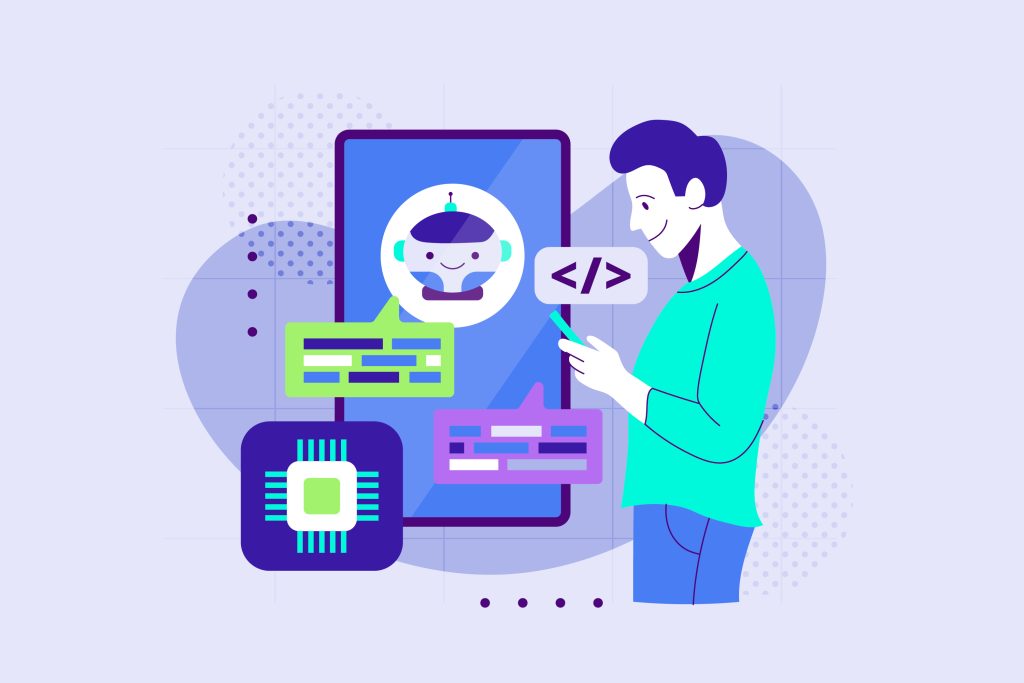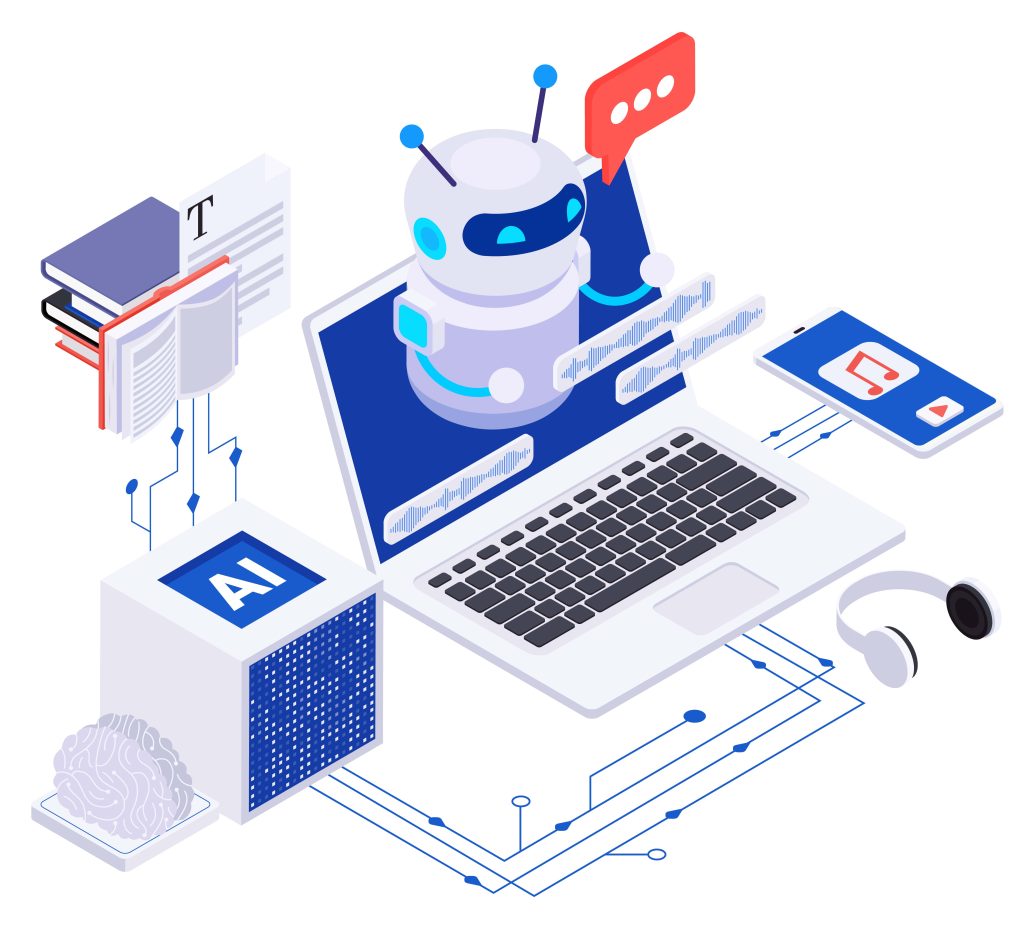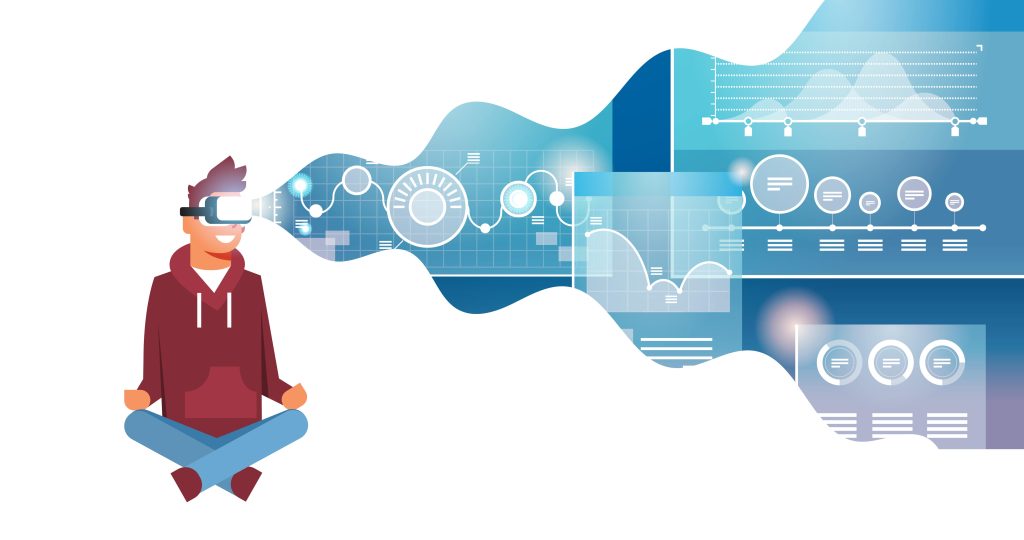- Artificial Intelligent AI in App Development



AI in App Development
AI in App Development: Transforming the Future of Mobile Applications
In recent years, Artificial Intelligence (AI) has become a driving force behind innovative app development, reshaping how applications are designed, built, and utilized. AI has introduced new ways to solve complex problems, enhance user experiences, and streamline operations across industries. In the fast-evolving landscape of mobile app development, AI is increasingly essential for creating intelligent, personalized, and efficient applications that cater to users’ needs more effectively.
This blog explores the key ways AI in app development is revolutionizing the industry, discussing its benefits, popular applications, and best practices for businesses looking to integrate AI into their app solutions.
Why AI Matters in App Development
AI brings numerous advantages to mobile app development, empowering developers to add powerful functionalities like predictive analytics, voice recognition, image processing, and more. This technology enables apps to understand, learn from, and respond to user behavior, resulting in personalized experiences that enhance engagement and loyalty.
Businesses that leverage AI in app development are better positioned to stay ahead of competitors, as AI-driven apps offer unique features that improve efficiency, streamline processes, and foster user satisfaction. Here are some of the primary reasons why AI is critical for modern app development:
Enhanced User Experience
AI algorithms allow apps to learn from user data and behavior, which enables them to deliver highly personalized experiences. This level of customization makes users feel more connected and valued, increasing engagement and retention rates.
Operational Efficiency
AI-powered automation reduces the need for human intervention in repetitive tasks, freeing up resources to focus on more complex tasks. This approach saves time and improves the efficiency of apps, especially in customer service and support.
Predictive Analysis
AI enables predictive analysis, allowing apps to anticipate user actions and preferences. This capability improves user satisfaction by providing relevant suggestions, content, or notifications at the right time.
Scalability
AI models can adapt and scale according to the changing needs of users, ensuring that apps can handle increased traffic and data without compromising performance. This scalability is essential for businesses seeking sustainable growth.
Key Applications of AI in App Development
The use of AI in app development is growing rapidly, with developers integrating AI in creative ways across various industries. Below are some popular applications that showcase the transformative impact of AI on app development.
Natural Language Processing (NLP) and Chatbots
NLP enables apps to understand and interpret human language, allowing users to interact with apps naturally through voice or text. AI chatbots in customer service applications use NLP to provide quick, efficient support, answering questions and resolving issues without human intervention.
Image and Facial Recognition
Many apps use AI-driven image recognition technology for various purposes, such as facial recognition, object detection, and medical image analysis. For instance, retail apps can utilize image recognition to suggest similar products, while security apps use facial recognition for secure authentication.
Voice Assistants
Voice-powered apps, like Siri, Alexa, and Google Assistant, use AI for voice recognition and response generation. Integrating voice assistants into apps allows users to perform tasks hands-free, making the app more convenient and accessible.
Recommendation Engines
AI-based recommendation engines analyze user behavior and preferences to suggest products, content, or services. Popular platforms like Netflix and Amazon leverage AI to deliver highly accurate recommendations, enhancing the user experience and boosting sales.
Sentiment Analysis
Sentiment analysis allows apps to gauge user sentiment through social media, reviews, and feedback. This data helps companies understand user satisfaction, identify pain points, and improve their services or products accordingly.
Augmented Reality (AR) and Virtual Reality (VR)
AI is instrumental in AR and VR experiences, particularly in gaming, retail, and education. AI algorithms in these applications track user movement, provide realistic responses, and create immersive virtual environments, enhancing user engagement and interaction.
Best Practices for Implementing AI in App Development
Successfully integrating AI in app development requires careful planning and execution. Businesses should keep in mind the following best practices to ensure that AI integration maximizes impact and aligns with their goals:
Identify the Purpose and Goals
Define specific goals for using AI within the app. For example, a retail app may aim to use AI to recommend products based on past purchases, while a healthcare app may use AI for patient monitoring. A clear purpose helps streamline development and focuses resources effectively.
Choose the Right AI Technology
There are several types of AI technologies, such as machine learning (ML), deep learning, and NLP. Select the one that aligns with your app’s needs. For example, ML is ideal for prediction and recommendation, while NLP is suited for chatbots and language processing.
Ensure Data Privacy and Compliance
AI relies heavily on data, but businesses must prioritize data security and privacy. Compliance with regulations like GDPR ensures that user data is handled ethically and legally. Implement security features such as encryption, access controls, and data anonymization.
Train and Fine-Tune AI Models
AI models require continuous training to improve accuracy and relevance. Regular updates and retraining help the model adapt to new data, making the app experience more responsive to changing user behaviors.
Monitor Performance and Collect Feedback
Regularly monitor AI performance metrics, such as response times, accuracy, and user engagement levels. Collecting user feedback can also help identify areas of improvement, ensuring that the AI-powered app continues to meet user expectations.
Future Trends: AI’s Evolving Role in App Development
As AI technology advances, its applications in app development are expected to expand further. Here are some emerging trends in AI in app development:
Emotion Recognition
Future AI models may be able to detect emotions through voice, text, or facial expressions, creating more empathetic and responsive user interactions. This technology could be particularly beneficial in mental health apps, where understanding a user’s emotional state is crucial.
AI in IoT and Smart Devices
The Internet of Things (IoT) is increasingly integrating AI, allowing smart devices to learn and respond autonomously. In app development, this trend will enable users to control and monitor their smart devices through AI-powered apps, creating a more seamless connected experience.
Explainable AI
Explainable AI (XAI) aims to make AI processes more transparent, allowing users to understand how AI-based decisions are made. In app development, XAI will be valuable in industries like finance and healthcare, where accountability and transparency are essential.
AI for Enhanced Cybersecurity
With cybersecurity threats on the rise, AI is expected to play a significant role in app security. By identifying patterns and detecting anomalies, AI-powered security systems can help prevent data breaches and other cyber threats, making applications safer for users.
Conclusion: Embracing AI for a Smarter, More Engaging App Experience
The integration of AI in app development has proven to be transformative, creating new opportunities for personalization, efficiency, and enhanced functionality across a wide range of applications. As AI technology continues to evolve, its impact on app development will likely expand, offering even more sophisticated and user-centered solutions.
However, businesses should approach AI integration strategically, ensuring that AI-driven features align with user needs, data privacy standards, and long-term business goals. By doing so, companies can leverage AI to create innovative apps that stand out in a competitive market.
Unlock the Power of AI in App Development with Incepteo
Ready to elevate your app with cutting-edge AI technology? Incepteo offers comprehensive AI in app development solutions designed to meet your unique business needs. Whether you’re looking to integrate personalized recommendations, advanced chatbots, or predictive analytics, our experts are here to guide you every step of the way.
Contact Incepteo today and discover how our AI-driven app solutions can help your business thrive in a dynamic digital world. Transform your app with Incepteo and unlock its full potential with the power of AI.
FAQs (Frequently Asked Questions)
1. How does AI improve the user experience in mobile apps?
AI enhances user experience by learning from user behavior and delivering personalized content and suggestions. This leads to higher engagement and better user retention, making the app feel more intuitive and responsive to individual needs.
2. What are some popular applications of AI in mobile apps?
AI is used in various applications such as Natural Language Processing (NLP) for chatbots, image and facial recognition, voice assistants like Siri and Alexa, recommendation engines on platforms like Netflix, and even sentiment analysis to gauge user feedback.
3. What is the role of AI in predictive analytics within apps?
AI enables predictive analytics, allowing apps to anticipate user actions and preferences. By doing so, apps can provide timely suggestions, content, or notifications that enhance user satisfaction and engagement.
4. How can businesses ensure their AI-powered apps comply with data privacy regulations?
Businesses should prioritize data security by adhering to privacy regulations such as GDPR. This includes implementing features like encryption, access control, and data anonymization to protect user data and ensure ethical handling.
5. What are some emerging trends in AI for app development?
Future trends include emotion recognition for more empathetic interactions, AI integration with IoT devices for smarter apps, explainable AI for greater transparency, and AI-enhanced cybersecurity to protect apps from threats.
Share this:
Recent Posts
- Top 10 Benefits of Using AI for eCommerce Business Growth
- How Incepteo Excels in AI Consulting for Small Businesses
- Top 10 Challenges AI Fintech Companies Face and How to Overcome Them
- How Offshore Mobile Development Reduces Operational Complexity for SMEs
- Why Incepteo is the Leading Software Development Company for Startups
By Sector

How Can Incepteo Help You?


Quick Links
AI SERVICES
2024 © All rights reserved by Incepteo



